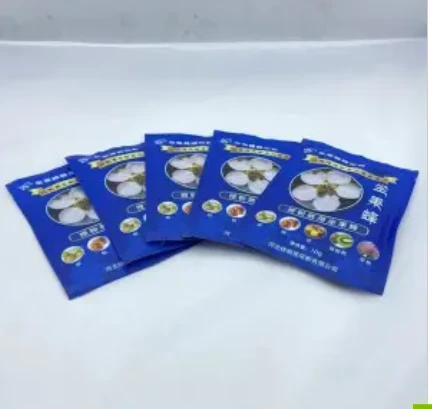Oct . 11, 2024 12:03 Back to list
Wholesale Pollen Supply for Effective Pollination in Cherry Orchards
Wholesale Pollen for Pollination in Cherry Orchards
Cherry orchards are a vital component of agricultural ecosystems, not only providing delicious fruit but also contributing to the biodiversity and health of our environment. To maximize yield and ensure the production of high-quality cherries, effective pollination is crucial. While cherry trees are capable of self-pollination, many varieties benefit significantly from cross-pollination. This is where the concept of wholesale pollen comes into play, offering a potential solution for orchard managers seeking to enhance their pollination strategies.
Pollen is the male gametophyte of seed plants and plays a fundamental role in plant reproduction. In the context of cherry orchards, the availability of high-quality pollen is essential for successful fertilization and fruit set. Wholesale pollen refers to the bulk purchasing of pollen from reliable sources, allowing orchardists to ensure that their trees receive sufficient and diverse pollen to promote effective pollination.
One of the primary advantages of using wholesale pollen is the ability to select the most suitable pollen varieties for specific cherry species. Different cherry varieties have varying pollen compatibility and viability, making it crucial to understand the genetic relationships between the types of cherry trees in an orchard. By sourcing wholesale pollen from reputable suppliers, orchard managers can carefully select pollen that will best facilitate cross-pollination, leading to higher fruit set rates and improved fruit quality.
Moreover, the use of wholesale pollen can help in situations where there is a shortage of pollinators, such as bees. Factors like pesticide use, habitat loss, and climate change have led to declining bee populations, which has a direct impact on cherry pollination. In response, orchardists can enhance their pollination efforts by introducing wholesale pollen, which provides a supplementary source of pollen when natural vectors are insufficient. This ensures that the trees receive the necessary pollen content required for optimal fruit development.
wholesale pollen for pollination in cherry orchard

In addition to improving pollination rates, the use of wholesale pollen can also enhance the overall management of cherry orchards. Orchardists can time their pollen applications to coincide with the flowering periods of their trees, ensuring that pollen is available when needed most. This timing is critical because different cherry varieties may bloom at different times, and applying wholesale pollen at the right moment can significantly boost the chances of successful fertilization.
Furthermore, wholesale pollen can be particularly advantageous in large-scale orchards. Managing a vast area with multiple cherry varieties can be challenging, especially in terms of maintaining optimal pollination conditions. By utilizing wholesale pollen, orchard managers can standardize their pollination practices across the entire orchard, leading to more consistent yields and profitability. This approach not only simplifies the management process but also allows for effective monitoring of pollination success.
There are, however, some considerations when using wholesale pollen for pollination in cherry orchards. It is crucial for orchardists to ensure that they are purchasing pollen from reputable suppliers who can guarantee the purity and viability of their products. Pollens may vary not only in compatibility with different cherry varieties but also in terms of their handling and storage conditions. Therefore, selecting high-quality wholesale pollen is essential to maximize its effectiveness in promoting successful cherry pollination.
Additionally, while wholesale pollen can supplement natural pollination efforts, it should not be seen as a complete replacement for attracting pollinators. Best practices in orchard management should still include creating a conducive environment for bees and other pollinators, such as planting flowering plants nearby, reducing pesticide usage, and maintaining diverse habitats within and around the orchard.
In conclusion, wholesale pollen presents a valuable resource for cherry orchard management, particularly in enhancing pollination success and fruit quality. By understanding the dynamics of pollen compatibility and investing in high-quality wholesale pollen, orchardists can significantly improve their yield while promoting sustainability within their agricultural practices. As the challenges of climate change and declining bee populations continue to affect agricultural systems worldwide, innovative solutions like wholesale pollen will play an increasingly important role in ensuring the health and productivity of cherry orchards. Embracing this approach can lead to not only greater economic benefits for farmers but also contribute positively to the environment.
-
High-Quality Peach Tree Pollen for Pure Pollination Success
NewsAug.09,2025
-
Fruit Paper Bags: Protect from Plant Pollen & Pests
NewsAug.08,2025
-
Plant Pollen Guide: Types, Uses & Artificial Pollination
NewsAug.07,2025
-
High-Viability Male Kiwipollen for Sale | Boost Yield
NewsAug.06,2025
-
Eco Fruit Paper Bags for Peak Freshness | Durability Focused
NewsJul.31,2025
-
Pollen Peach Tree for Pure Pollination and High-Quality Peach Pollen
NewsJul.30,2025